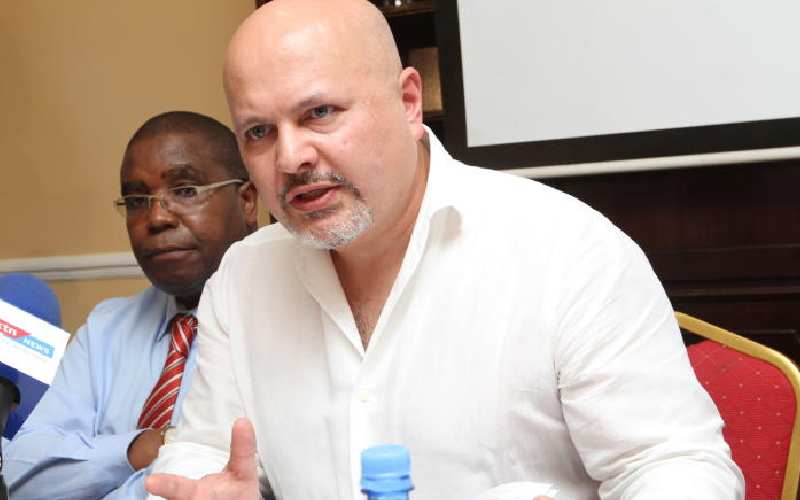
Deputy President William Ruto's lawyer during the ICC cases Karim Khan during a media briefing in Nairobi on April 6, 2016.[Jonah Onyango,Standard]
Deputy President William Ruto’s lawyer Karim Khan has finally taken over from Fatou Bensouda as the new Chief Prosecutor for the International Criminal Court (ICC).
The 51-year-old Briton replaces Bensouda for a nine-year term and all eyes will be on him as he has lawyer Paul Gicheru’s file in his in-tray. Gicheru is wanted by the ICC for allegedly influencing witnesses ICC had lined up against Ruto and journalist Joshua arap Sang.